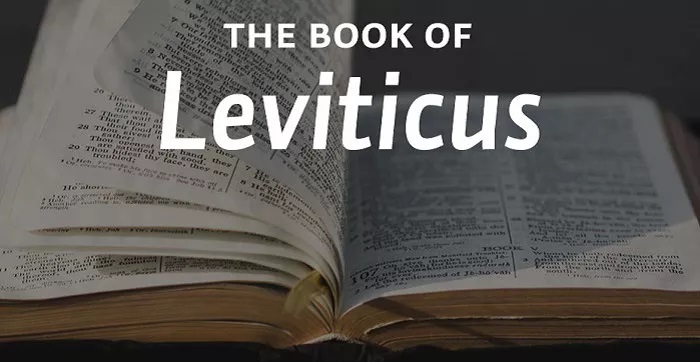What Happens in the Book of Leviticus?

Strong 8k brings an ultra-HD IPTV experience to your living room and your pocket.
Leviticus was written during Israel’s time in the wilderness, after their exodus from Egypt. The book is part of the Pentateuch, the first five books of the Bible, traditionally attributed to Moses. The primary focus of Leviticus is holiness. It provides instructions for the Israelites to live a holy life and maintain a proper relationship with God.
Sacrificial System
One of the central themes of Leviticus is the sacrificial system. Sacrifices were a way for the Israelites to atone for their sins and maintain fellowship with God. The book describes several types of offerings:
- 1. Burnt Offerings: These were made to atone for sins. The entire animal was burnt on the altar.
- 2. Grain Offerings: These were offerings of flour, oil, and incense. They symbolized thanksgiving and dedication to God.
- 3. Peace Offerings: These were voluntary offerings to express gratitude and fellowship with God.
- 4. Sin Offerings: These were required for unintentional sins. They provided purification and forgiveness.
- 5. Guilt Offerings: These were made for specific sins, especially those involving desecration of holy things or deceit.
Priestly Ordination
Leviticus also details the ordination of Aaron and his sons as priests. This process included sacrifices, anointing, and specific garments. The priests had a crucial role in mediating between God and the people. They conducted the sacrifices and maintained the Tabernacle, the portable sanctuary where God’s presence dwelled.
Clean and Unclean
Another important aspect of Leviticus is the distinction between clean and unclean. This concept affected many areas of life, including food, disease, and bodily functions. The purpose of these laws was to promote physical and spiritual purity among the Israelites. Some key points include:
- 1. Dietary Laws: Certain animals were considered clean and could be eaten, while others were unclean and forbidden. For example, land animals that chew the cud and have split hooves were clean, while others were not.
- 2. Leprosy and Skin Diseases: Detailed instructions were given for diagnosing and treating skin diseases. Affected individuals were isolated to prevent the spread of disease.
- 3. Bodily Discharges: Laws concerning bodily discharges, such as menstruation or seminal emissions, were given. These conditions rendered a person temporarily unclean and required purification rituals.
Day of Atonement
The Day of Atonement, or Yom Kippur, is one of the most significant events described in Leviticus. It was a yearly observance for the atonement of the sins of the entire nation. The High Priest would enter the Holy of Holies, the innermost part of the Tabernacle, to offer sacrifices. The rituals included:
- 1. Sacrifices: A bull was sacrificed for the High Priest’s sins, and a goat for the people’s sins.
- 2. Scapegoat: Another goat, the scapegoat, was sent into the wilderness, symbolically carrying away the sins of the people.
- 3. Cleansing of the Sanctuary: The Tabernacle and its furnishings were cleansed with the blood of the sacrifices.
Holiness Code
Chapters 17-26 of Leviticus are often referred to as the Holiness Code. These chapters emphasize the importance of living a holy life. They cover various aspects of daily life, including moral conduct, sexual behavior, and social justice. Some key points include:
- 1. Prohibition of Idolatry: The Israelites were forbidden to worship other gods or make idols.
- 2. Sexual Purity: Laws were given to regulate sexual behavior, including prohibitions against incest, adultery, and homosexuality.
- 3. Social Justice: Instructions were given for fair treatment of others, including the poor, the elderly, and foreigners.
- 4. Sabbath and Festivals: Regulations for observing the Sabbath and annual festivals were provided. These times of rest and celebration were important for maintaining the Israelites’ relationship with God.
Blessings and Curses
Leviticus concludes with a section on blessings and curses. This part outlines the consequences of obedience and disobedience to God’s laws. Obedience would bring blessings, such as prosperity, peace, and protection. Disobedience would bring curses, including disease, famine, and exile.
The Role of the Priests
The priests had a central role in the religious life of Israel. They were responsible for offering sacrifices, teaching the law, and maintaining the sanctuary. The book of Leviticus provides detailed instructions for the priests’ duties and qualifications. They were held to high standards of holiness, as they represented the people before God.
Sacred Times and Seasons
Leviticus also outlines the sacred times and seasons that the Israelites were to observe. These included weekly, monthly, and annual observances. Key examples include:
- 1. Sabbath: The weekly day of rest and worship.
- 2. Passover and Unleavened Bread: Celebrating the Israelites’ deliverance from Egypt.
- 3. Feast of Weeks (Pentecost): Celebrating the firstfruits of the harvest.
- 4. Feast of Trumpets: Marking the beginning of the civil year.
- 5. Day of Atonement: The annual day of fasting and repentance.
- 6. Feast of Tabernacles: Commemorating the Israelites’ time in the wilderness.
Practical Applications for Today
While many of the specific laws in Leviticus were given to ancient Israel, the principles behind them can still be relevant today. Here are a few ways in which the teachings of Leviticus can be applied in a contemporary context:
- 1. Holiness and Purity: The emphasis on holiness in Leviticus reminds us of the importance of living a life that is set apart for God. This includes moral and ethical behavior, as well as spiritual disciplines.
- 2. Sacrifice and Atonement: The sacrificial system in Leviticus points to the ultimate sacrifice of Jesus Christ. Understanding these ancient practices can deepen our appreciation for the atonement provided through Christ.
- 3. Community and Justice: The social laws in Leviticus highlight the importance of caring for others and promoting justice. These principles can inform our interactions with others and our involvement in social issues.
Conclusion
The Book of Leviticus is a rich and complex text that provides a detailed look at the religious life of ancient Israel. It emphasizes the importance of holiness, the role of the priests, and the sacrificial system. While some of its laws may seem foreign to modern readers, the principles behind them remain relevant. By studying Leviticus, we can gain a deeper understanding of the biblical concept of holiness and the relationship between God and His people.
Note: IndiBlogHub features both user-submitted and editorial content. We do not verify third-party contributions. Read our Disclaimer and Privacy Policyfor details.




